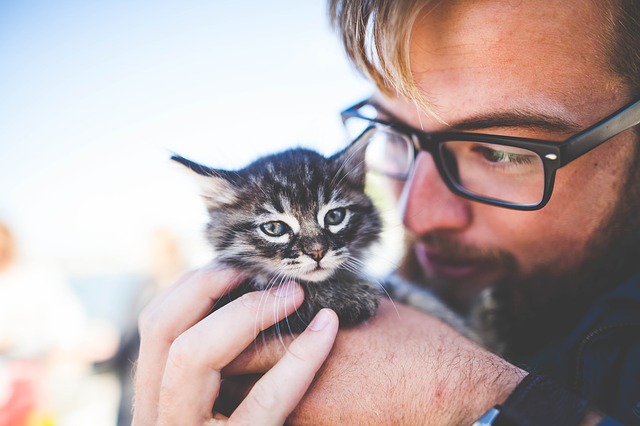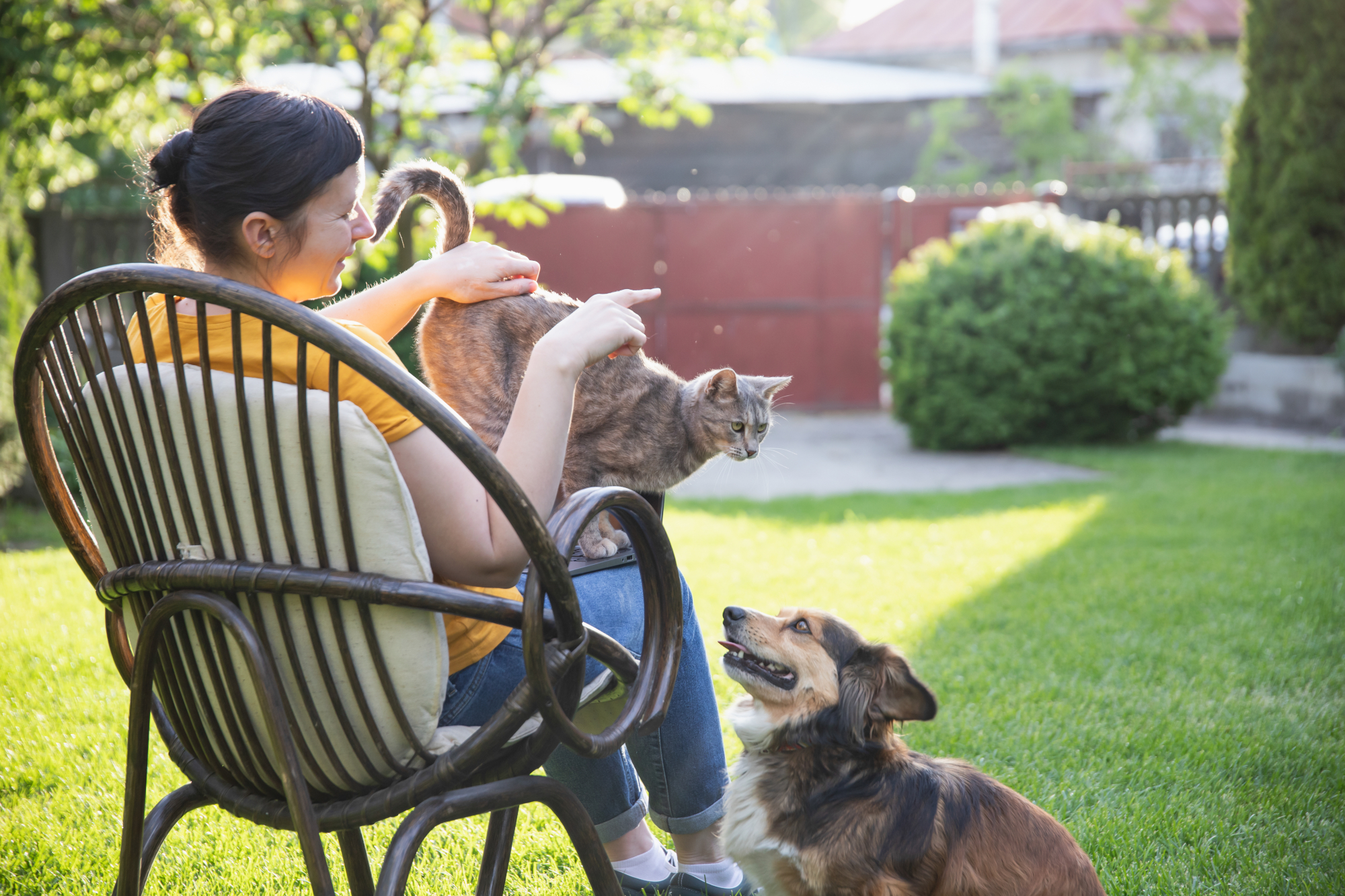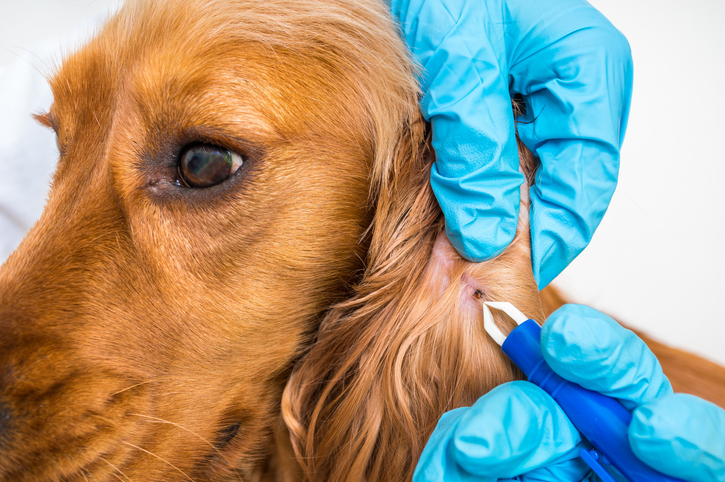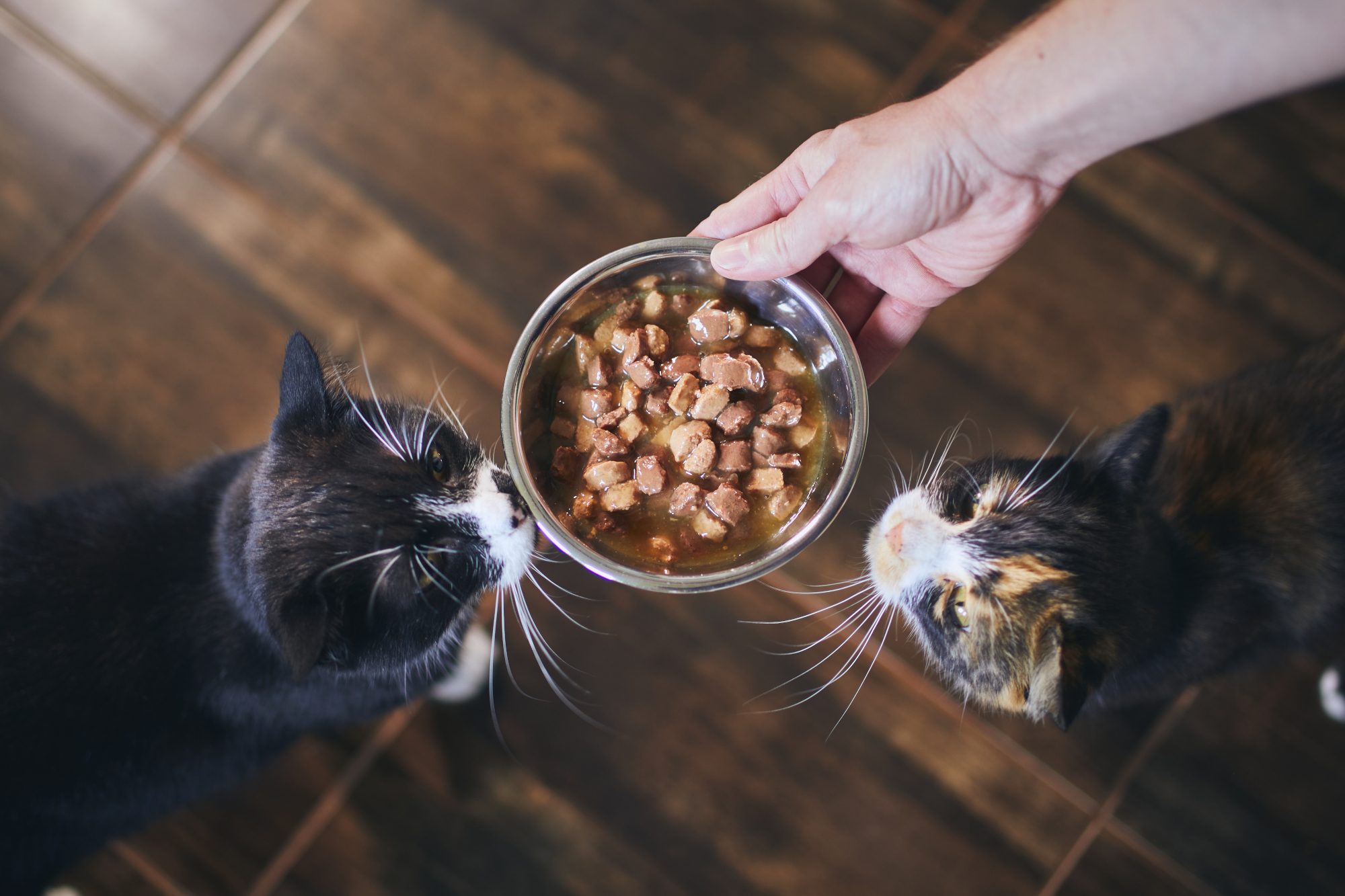Congratulations, you’re a mother! Well, your cat is. While your cat is like any mother, you as a new owner of kittens have a few motherly duties yourself in terms of kitten care for these precious new babies.
That being said we do not recommend home breeding of cats! Spaying and neutering (especially if they are outdoor cats) is also important especially if you are not financially ready or have the space for properly raising a litter of kittens. We understand though that “oops” moments happen however, or perhaps you’ve even adopted your kitten from a shelter like VOKRA or other rescue shelters for foster care, so this article should help prepare you for those sorts of situations.
And if you just got your first kitten, this post is for you too!
Week 0-1: Babies have Arrived!
I’m sure many have heard that newborn kittens are born with their eyes shut, but did you know they are also born with their ears shut as well? Without any hearing or sight, they rely on their sense of touch and smell. Their mother will lick and clean them, a lot! This helps to stimulate the kittens, who also need their mother for warmth, stimulation of intestinal function for their bowels and bladder, and source of nutrition.
As with most babies, kittens eat, sleep, and poop. But unlike human babies, before being litter box trained, after they eat, mother cat licks their bellies and genital areas, stimulating digestion and keeping them clean.
Kittens need their environment to be kept consistent so they don’t develop hypothermia or hyperthermia. At this stage, your kittens will eat constantly which is vital to their growth, development, and immunity buildup against diseases.
Here’s something I bet you didn’t know: each kitten has a preferred nipple they feed from and rely on its unique smell to locate it.
Week 2-3: My, What Bright Blue Eyes You Have!
Not too much happens this week, but every bit of development counts. Your kittens’ eyes should be starting to open, and their eyesight will be blurry. DO NOT force open their eyes! This can result in permanent eye damage, making them more vulnerable to infections. Keep watch for signs such as crustiness and white/yellow secretions. If you think something doesn’t look normal, bring them to your veterinarian’s office.
Like human babies, kittens are also born with blue eyes. As they get older, their eyes may change to the colour they will be permanently.
Your kittens should be twice the size they were when they were born!
Week 3-4: Tiny Explorer Ever Growing. Hello, Squeaky!
At this stage, the kittens’ sense of smell is getting better, their eyes may start to change colour, their ears are standing up and their hearing improves. Like humans, kittens get milk teeth (baby teeth) and eventually adult teeth.
They start to be more aware of their siblings and surroundings, and start to stand and crawl, exploring away from mom for short periods. But this still means you should resist handling those cute little bundles of fur. Too much handling in early stages upsets mom, and in worst cases, mom can reject them because of it.
By the end of this week, your kittens should be four times their birth weight. As they start to hear better, they will squeak when hungry, purr when they’re happy, and hiss when they’re scared, which means they’ll be extra sensitive to loud noises.
Week 4-5: Kitty Bobble Head, Potty Training, & Mom Weaning
Their hearing should be well-developed but their eyesight is still improving. At this stage, your kitties are starting to try and balance out, as they have reached the “bobble head stage” in which their head is bigger in proportion to their body. They will be exploring more but still sticking close to mom. The kitties can now start to groom themselves.
This is considered to be the weaning stage, to help reduce their dependency on mom. As the kitties start exploring more, be careful of things around the house that can be harmful to them such as chemicals, plants, and small openings as to minimize the risk of illness and injury.
During the weaning stage, provide a small litter box and shallow bowl with kitten milk replacer (as to not upset their digestive system with cow’s milk)in a small separate area. The litter box should be easy for the kittens to climb into.
With litter box training, keep the kittens from trying to eat the litter in case of obstruction; this is not normal behaviour. Make sure you get the appropriate kind of litter. Also, be wary that like any animal or human, they may have accidents or miss the litter box. Be sure their bedding is easily washable and keep their area clean regularly.
Week 5-6: Boy or Girl? Human Cuddles!
The kittens’ eyesight should be fully developed. They will now start to use the litter box voluntarily. The kittens may still be nursing, but as you start to help them wean, you can introduce them to a mix of canned kitty food or dry kitty food with kitten formula. You can try and place a small amount of food or formula on your finger and see if they will lick at it to accept it. Not all will take to food so patience is needed. Your vet may also provide you with diet recommendations should they be needed – just ask!
As the kitties become more explorative, they will be more graceful, start playing with toys, and pounce on each other. This is the time to start giving them lots of human cuddles! Handling them physically helps their development by getting them used to humans and help them be more social and friendly.
Weeks 6-8: The Cat Babies are Now Toddlers!
This time frame is typically when it’s best to take your kitties to your veterinarian for their vaccinations as well as precautionary worming treatment.
As you know, they are becoming a lot more active and playful, which means their claws are developing and they are going to start scratching to sharpen their nails. This is the time best to find a suitable scratching post to teach them that anywhere else (curtains, furniture, etc.) equals bad behaviour.
Between weeks 6 and 7 is the time you can gently start grooming them. Use a brush, give them a bath (careful with the soap), and handle their paws regularly. Their paws should have five toes on each front foot and four toes on each back foot unless they are polydactyl (more than the usual number of toes on one or more paws). Handling their paws helps to make nail clipping easier (gently press to extend the nails), cuddles, and handling their ears and mouths help make basic health inspections, medicating, and teeth brushing easier. This also helps give mom longer “me time.” This interaction makes an active part in their socialization process without being intrusive.
Kittens can be homed from about seven weeks if they are fully weaned from mom.
By week eight, they should have all their baby teeth and be eating four small meals a day and mostly solids.
Be sure to keep records of their weight, to be sure they are gaining steadily. Look for signs of sickness: loss of appetite, sleeping alone (at a very young age), rejection of milk from mom, vomiting, diarrhea, weakness, discharge from mouth, eyes, anus, etc. When in doubt, talk to your vet.
Now you’re on your way to having happy, healthy kitties!
Part 2 is available now! Read Caring for Kittens, The Series. Stage 2: Age 8-12 Weeks.
Creative Commons Attribution: Permission is granted to repost this article in its entirety with credit to Hastings Veterinary Hospital and a clickable link back to this page.






